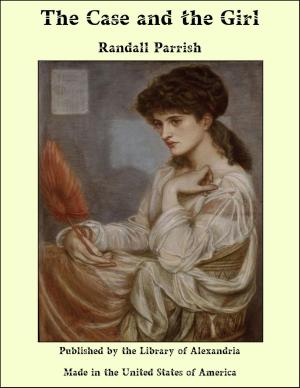English Caricature and Satire on Napoleon (Complete)
Nonfiction, Religion & Spirituality, New Age, History, Fiction & Literature| Author: | John Ashton | ISBN: | 9781465604552 |
| Publisher: | Library of Alexandria | Publication: | March 8, 2015 |
| Imprint: | Language: | English |
| Author: | John Ashton |
| ISBN: | 9781465604552 |
| Publisher: | Library of Alexandria |
| Publication: | March 8, 2015 |
| Imprint: | |
| Language: | English |
Curiously enough, it has never been practically settled whence the ancestors of Napoleon Bonaparte came. He, himself, cared little for the pride of birth, and when, during his Consulate, they manufactured for him a genealogy descending from a line of kings, he laughed at it, and said that his patent of nobility dated from the battle of Montenotte. But, still, one would think he ought to know, for family tradition is strong; and if it can be trusted, this is his own account. ‘One day Napoleon questioned Canova about Alfieri, and Canova found an opportunity to render an important service to Florence, c. “Sire,” said he, “authorise the President of the Academy of Florence to take care of the frescoes and pictures. I heartily wish it. That will reflect great honour on your Majesty, who, I am assured, is of a noble Florentine family.” At these words the Empress (Maria Louisa) turned towards her husband and said:—“What! are you not Corsican?” “Yes,” replied Napoleon, “but of Florentine origin.” Canova then said:—“The President of the Academy of Florence, the Senator Allessandria, is of one of the most illustrious houses in the country, which has had one of its ladies married to a Bonaparte, thus you are Italian, and we boast of it.” “I am, certainly,” added Napoleon.’ Prince Napoleon Louis Bonaparte (brother to the Emperor) published in 1830, at Florence, a French translation of an old book about the sack of Rome, 1527, which gives an account of the family of the writer. But Majorca also puts in a claim to the older Bonapartes; and in 1852, Don Antonio Furio, a learned man, Member of the Royal Academies of Belles Lettres of Barcelona and Majorca, &c., made a declaration as to ‘the rank, dignity, and extinction of the noble family of Bonapart in the island of Majorca;’ and quotes from a book kept in the archives of Palma, in which are preserved the armorial escutcheons of the noble families of the Island, the arms of Bonapart—which were Dexter, on a field Azure, six stars, Or, placed two by two, Sinister, on a field gules, a lion rampant, Or; and the Chief Or, bears a scared eagle, sable. He says the family came from Genoa to Majorca, in which island its members were considered noblemen, and they filled several distinguished offices. In a register of burials relating to knights and gentlemen, written in 1559, the antiquity and nobility of the Bonaparts are clearly authenticated; and it would seem from Don Furio’s account (for all of which he gives chapter and verse) that the learned jurisconsult Don Hugo Bonapart left Majorca and went to Corsica, where, in 1411, he was made Regent of the Chancery of that place; and, as he settled there, his name was inscribed in the Golden Book of France.
Curiously enough, it has never been practically settled whence the ancestors of Napoleon Bonaparte came. He, himself, cared little for the pride of birth, and when, during his Consulate, they manufactured for him a genealogy descending from a line of kings, he laughed at it, and said that his patent of nobility dated from the battle of Montenotte. But, still, one would think he ought to know, for family tradition is strong; and if it can be trusted, this is his own account. ‘One day Napoleon questioned Canova about Alfieri, and Canova found an opportunity to render an important service to Florence, c. “Sire,” said he, “authorise the President of the Academy of Florence to take care of the frescoes and pictures. I heartily wish it. That will reflect great honour on your Majesty, who, I am assured, is of a noble Florentine family.” At these words the Empress (Maria Louisa) turned towards her husband and said:—“What! are you not Corsican?” “Yes,” replied Napoleon, “but of Florentine origin.” Canova then said:—“The President of the Academy of Florence, the Senator Allessandria, is of one of the most illustrious houses in the country, which has had one of its ladies married to a Bonaparte, thus you are Italian, and we boast of it.” “I am, certainly,” added Napoleon.’ Prince Napoleon Louis Bonaparte (brother to the Emperor) published in 1830, at Florence, a French translation of an old book about the sack of Rome, 1527, which gives an account of the family of the writer. But Majorca also puts in a claim to the older Bonapartes; and in 1852, Don Antonio Furio, a learned man, Member of the Royal Academies of Belles Lettres of Barcelona and Majorca, &c., made a declaration as to ‘the rank, dignity, and extinction of the noble family of Bonapart in the island of Majorca;’ and quotes from a book kept in the archives of Palma, in which are preserved the armorial escutcheons of the noble families of the Island, the arms of Bonapart—which were Dexter, on a field Azure, six stars, Or, placed two by two, Sinister, on a field gules, a lion rampant, Or; and the Chief Or, bears a scared eagle, sable. He says the family came from Genoa to Majorca, in which island its members were considered noblemen, and they filled several distinguished offices. In a register of burials relating to knights and gentlemen, written in 1559, the antiquity and nobility of the Bonaparts are clearly authenticated; and it would seem from Don Furio’s account (for all of which he gives chapter and verse) that the learned jurisconsult Don Hugo Bonapart left Majorca and went to Corsica, where, in 1411, he was made Regent of the Chancery of that place; and, as he settled there, his name was inscribed in the Golden Book of France.















